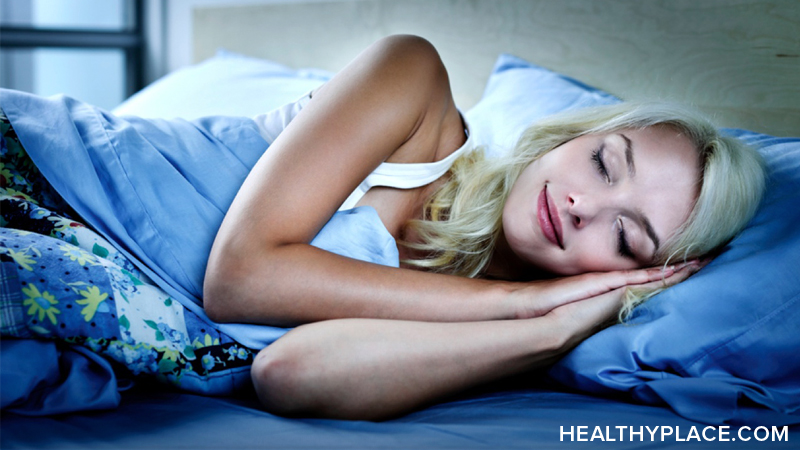Melatonin for Sleep Disorders

Government report says safety of melatonin supplements is unclear and melatonin supplements have little benefit in treating sleep disorders.
AHRQ Issues New Report on the Safety and Effectiveness of Melatonin Supplements
A new evidence review by HHS' Agency for Healthcare Research and Quality found that melatonin supplements, which people often take for problems sleeping, appear to be safe when used over a period of days or weeks, at relatively high doses and in various formulations. However, the safety of melatonin supplements used over months or even years is unclear. While there is some evidence for benefits of melatonin supplements, for most sleep disorders the authors found evidence suggesting limited or no benefits. But the authors say that firm conclusions cannot be drawn until more research is conducted. The report was requested and funded by the National Center for Complementary and Alternative Medicine, a part of HHS' National Institutes of Health.
The report's authors reviewed the scientific evidence to date for the benefits of melatonin supplements used for disorders due to sleep schedule alterations and primary and secondary sleep disorders. Disorders due to sleep schedule alterations can stem from flying across time zones or working night shifts. Primary sleep disorders, which include insomnia, can be caused by factors such as stress or drinking too much caffeinated coffee. Secondary sleep disorders can also include insomnia, but patients in this category also have underlying mental disorders, such as psychoses or mood and anxiety disorders, neurological conditions such as dementia and Parkinson's disease, or chronic pulmonary disease.
In its natural form, melatonin is produced by the brain's pineal gland to regulate the sleep cycle. In the evening the level of the hormone in the bloodstream rises sharply, reducing alertness and inviting sleep, and in the morning it falls back, encouraging waking.
Among those problems for which melatonin supplements appear to provide little benefit are jet lag—a problem that often nags coast-to-coast travelers and those who fly through other time zones, as well as people who work night shifts.
In contrast, the authors found evidence to suggest that melatonin supplements may be effective when used in the short term to treat delayed sleep phase syndrome in persons with primary sleep disorders. In delayed sleep phase syndrome, a person's internal biological clock becomes "out of sync," making it difficult to fall asleep until very late at night and to wake up early the next morning. But melatonin supplements may decrease sleep onset latency—the time it takes to fall asleep after going to bed—in persons with primary sleep disorders such as insomnia, although the magnitude of the effect appears to be limited.
Melatonin supplements do not appear to have an effect on sleep efficiency in persons with primary sleep disorders, and the effects of the hormone do not seem to vary by the individual's age, type of primary sleep disorder, dose or length of treatment. Sleep efficiency refers to the percent of time a person is asleep after going to bed. Furthermore, melatonin supplements do not appear to affect sleep quality, wakefulness after sleep onset, total sleep time or percent of time spent in rapid eye movement (REM) sleep. This most important phase of sleep is characterized by extensive physiological changes such as accelerated breathing, increased brain activity, REM and muscle relaxation.
In people with secondary sleep disorders, melatonin supplements do not appear to have an impact on sleep latency in either adults or children—regardless of dose or duration of treatment. On the other hand, the hormone does appear to increase sleep efficiency modestly, but not enough to be considered clinically significant. Melatonin supplements were not found to have an effect on wakefulness after sleep onset or percent of time spent in REM sleep, but they do appear to increase total sleep time.
"Having evidence on what works and what may have limited or no benefit for the patient is a key part of AHRQ's mission," said AHRQ Director Carolyn M. Clancy, M.D. "Sleep disorders can affect a person's quality of life and job performance, which can translate into decreased productivity, motor vehicle and industrial accidents, and even medical errors." Estimates show that at least 40 million Americans each year suffer from chronic sleep disorders, and an additional 20 million experience occasional sleep problems.
NCCAM Director Stephen E. Straus, M.D., said, "The data from this report provide not only a scientific perspective on what is known and not known about melatonin to date, but some intriguing and important leads for areas of future research on melatonin and its use for sleep problems. This supplement is of interest to many Americans as an alternative to prescription drugs for this purpose."
Insomnia, the most common sleep disorder, affects 6 percent to 12 percent of adults, while 15 percent to 25 percent of children have difficulty initiating or maintaining sleep. Sleep disorders cost an estimated $16 billion in medical costs alone each year. Indirect costs due to lost or sub-standard work productivity, accidents, resulting litigation, and other factors may increase overall costs many fold. The National Highway Traffic Safety Administration, for example, estimates that 100,000 motor vehicle accidents a year are caused by driver fatigue from sleep deprivation, which is one result of some sleep disorders, and that more than 1,500 people are killed and another 71,000 injured annually as a result.
The evidence report was prepared by a team of researchers led by Terry Klassen, M.D., director of AHRQ's University of Alberta/Capital Evidence-based Practice Centre in Edmonton, and Chair of Pediatrics for the university's Faculty of Medicine and Dentistry. A summary of Melatonin for Treatment of Sleep Disorders can be found at www.ahrq.gov/clinic/epcsums/melatsum.htm. To download the full report as a PDF file, go to http://www.ahrq.gov/clinic/epcsums/melatsum.pdf.
Source: Agency for Healthcare Research and Quality (AHRQ) press release
back to: Alternative Medicine Home ~ Alternative Medicine Treatments
APA Reference
Staff, H.
(2008, November 4). Melatonin for Sleep Disorders, HealthyPlace. Retrieved
on 2025, December 24 from https://www.healthyplace.com/alternative-mental-health/treatments/melatonin-for-sleep-disorders

